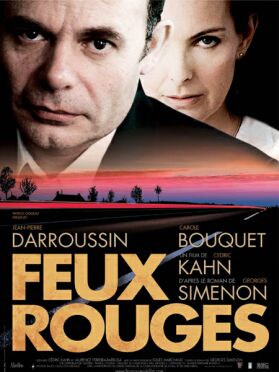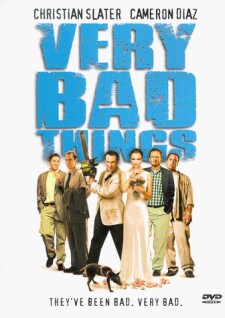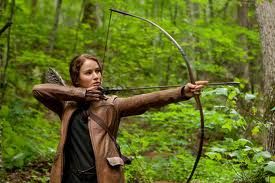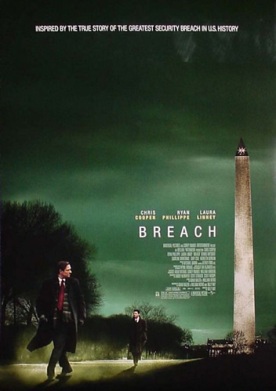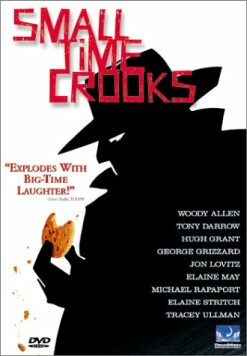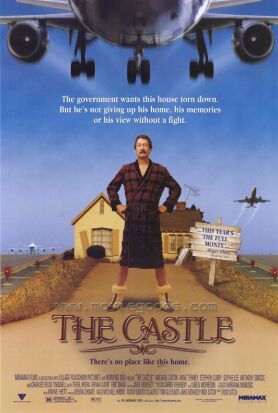Feux Rouges (Red Lights)
The title of Red Lights (Feux Rouge), adapted from a novel by Georges Simenon and directed by Cédric Kahn, has at least two distinct meanings. In the first place, it refers to the migratory patterns of the French middle classes, all streaming out of Paris in August in a procession marked, if you are stuck in it, by a seemingly endless series of automotive tail-lights. As the film’s hero, Antoine (Jean-Pierre Darroussin), puts it, “What’s dumber than a train?” Suddenly revolted at the idea of his own herd-instincts in following the crowd and fortified by way too much whisky, he takes an unexpected exit off the main highway and soon finds himself in strange and frightening territory. Cinematically, of course, that is very familiar territory, but Kahn does a good job of making it new by mixing it up with the story of Antoine’s marriage to Hélène (Carole Bouquet) in a way that is powerfully reminiscent of Chabrol’s great movie, La Femme Infidèle, of 1969.
But the title also offers us a guideline: we need to follow those lights to avoid going off the road ourselves into the notion that the movie is what it frequently looks like becoming, namely a psychological study of the relationship between Antoine and Hélène. Their marriage almost takes on an artistic life of its own because of the strange mismatch it seems to present us with. Antoine, stuck in a humdrum job in an insurance office, feels not only neglected but outclassed by his wife, who is a high-flying corporate lawyer and much more in demand — socially as well as professionally — than he. There are hints that she may be having an affair, but we know no more of this than Antoine, who is made miserable by his suspicions. In an affectionate e-mail, he tells her he is looking forward to their August trip out of Paris to retrieve the kids from a summer camp near Bordeaux like a kid on his first date. But to him she is cold, unavailable and bossy.
Antoine takes out his frustration with her in secret drinking — at least until his act of rebellion in leaving the main road, when the drinking becomes open. Finally, when he can no longer be bothered to invent a pretext but admits he has pulled the car over in order to have another drink, Hélène threatens him. If he leaves the car, she tells him, she will go on alone to collect the children. “If you care to join us you can take the train.” In another act of defiance, he takes the keys from the ignition and leaves her to steam as he goes to get his drink. But when he comes back, she has gone, leaving a note: “I’m going by train.” She obviously retains her cool independence, unfazed by Antoine’s sudden need to go off the rails, and she herself sees nothing “dumb” about following those red lights along the well-traveled highways.
If the marriage really were the focus of the film instead of being incidental to its purposes, Antoine’s reaction on coming out of the bar to find his wife missing would presumably be different from what it is, which is to feel immediate remorse and panic. The rebellion, in other words, is just a momentary spasm, not a real event — a symbolic act by which Antoine, like many other married people, merely wishes to express his feelings to his spouse. But the film’s real point is to make his act of impotent petulance suddenly take on a deadly reality and seriousness, something that neither spouse could have imagined. This happens through the intervention of what I think can only be the self-consciously cinematic, indeed sub-Hitchcockian device of an escaped convict (Vincent Deniard). Throughout Antoine’s various stops in roadside bars, we see repeated television reports about the fugitive, and so we are prepared when, after a frantic but fruitless search for Hélène, he begins a drunken monologue to a large and taciturn stranger in the bar after his wife has disappeared.
Now surely, you may say, this cannot be what it seems. It’s just too obvious that he should run into the same fugitive in the bar, begin gabbling about his troubles with his wife and then give the man a lift. Obviously, there must be a twist by which the fugitive will arrive from an unexpected quarter and the rough-looking stranger turn out to be someone else entirely. I won’t reveal here whether or not this intuition is correct, but I can say that Antoine soon gets the idea fixed in his drink-addled head that he has, indeed, picked up the escapee for whom the gendarmes have set up road- blocks all along his route. And, now in despair about Hélène’s disappearance, he reacts quite unexpectedly. Also, it is at this point that we have the second and more interesting application of the eponymous red-lights.
Led by the combination of booze and his inability to find his wife into a kind of philosophical fatalism, Antoine makes common cause with the fugitive. He may not have meant for his rebellion against the societal norms to go this far, but now that it has he might as well enjoy it. As they pass through one roadblock — where they obviously haven’t got the breathalyser working, he cheers: “We made it!” as if he now saw himself as the criminal’s accomplice. Shortly afterwards, he drives drunkenly off the road and punctures a tire. The other man roughly pushes him aside to change the tire, then slaps him out of his drunken stupor and throws him in the back seat of the car, taking the wheel himself. From the backseat, Antoine now indulges himself in another monologue to the man he thinks a criminal murderer: “If men weren’t scared s***less,” he says, “if they were real men like you, we wouldn’t need cops and courts, red lights at every intersection. You’re a lord, a prince,” he adds, rigid with emulation. For he has a sense of honor too, he tells the other, and it hurts that the prince misjudges him as one of those wimps that he can contemptuously push aside.
These red lights, like the other ones, are emblematic of social conformity, but they add to it. Now the instinct to follow the herd is not a matter of mere unreasoning prejudice but a sign of civilization and the rule of law — which, admirable as they may still be, are even more unanswerably opposed to the masculine impulse to independence, self-assertion and mastery which Antoine, in his cups, imagines himself as giving way to just as the convict has done. This drunken fantasy of suddenly becoming a Nietzschean superman thus becomes the very emblem of his impotence — as, come to think of it, it did for Nietzsche himself — until yet another twist of the plot requires him to bring it to life. The elemental quality he must recapture in himself ultimately transforms his relationship with Hélène and takes us back to the very origins of masculine honor. I find that story sufficiently persuasive that, in spite of its seeming rather contrived in Kahn’s telling, I have no hesitation in recommending his movie.
Discover more from James Bowman
Subscribe to get the latest posts to your email.

